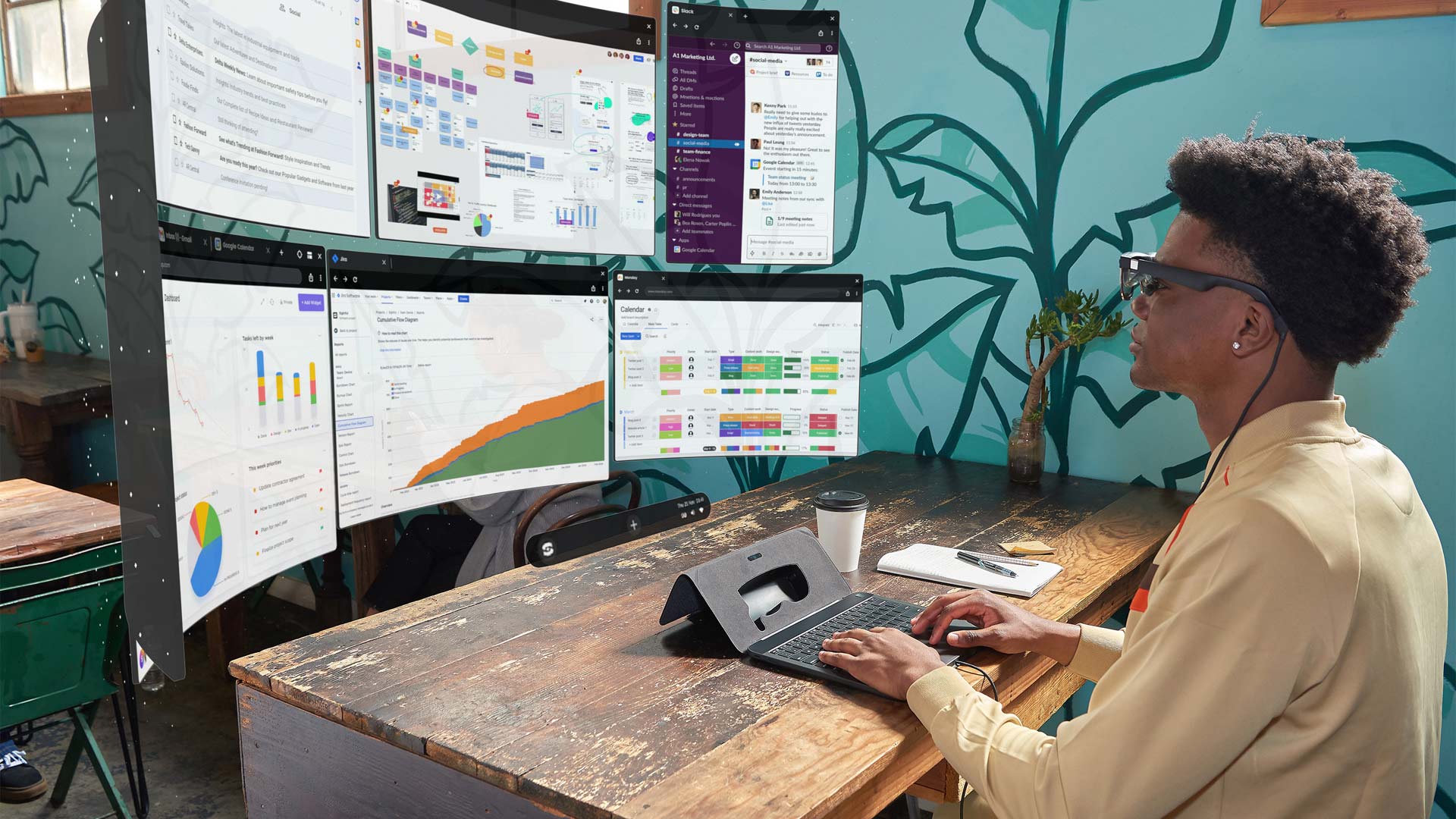Sightful, the hardware startup working to carve out a new ‘headless AR laptop’ niche, has cancelled plans for its $1,900 Spacetop G1.
Unveiled back in May, Spacetop G1 was set to be the company’s first commercially available product following the early access release of its first Spacetop, which delivered a somewhat bulgy laptop form factor tethered to a pair of XREAL AR glasses.
Now, the company tells CNET it’s cancelling Spacetop G1 altogether, and that pre-order customers will be are offered refunds for their $100 deposits.

Sightful says this comes down to difficulties competing with Microsoft’s own neural processing units (NPU), which are integrated into its latest generation of Surface laptops, as well as the usual cadre of partner OEMs, such as Lenovo, Dell, Asus, and HP. Those NPU-integrated laptops promise to improve processing power and battery efficiency when running AR applications.
Previously targeting an October 2024 launch, Spacetop G1 was set to use its own Android-based SpaceOS, running on Qualcomm’s Snapdragon QCS8550 chipset, and exclusively tethered to the supplied XREAL Air 2 Ultra glasses.
Sightful, which secured $61 million in funding to date, now says its shifting focus to a software product for Windows laptops, enabling a similar AR experience, which will run Windows apps and integrate with Microsoft’s CoPilot AI features.
The company says its software will be available in early 2025, initially compatible with Xreal AR glasses via USB-C. More AR glasses could be added, however Sightful hasn’t shared any specific plans.
Furthermore, Sightful says Mac support will arrive post-launch, and there may also be the potential to expand beyond laptops, such as TVs and phones, however it hasn’t provided any specific timeline yet.







